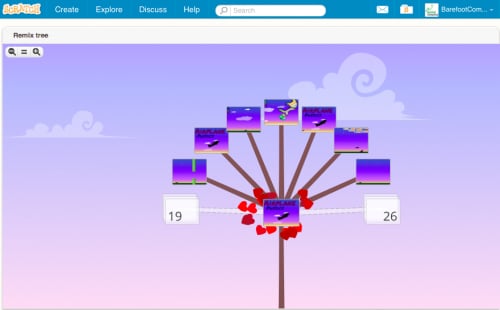3 - 5 years
Encourage pupils to develop their emerging collaborative skills simply by waiting in line, taking turns or sharing resources. Let them practise explaining and listening to peers. Give them activities to work on together, with or without staff support. In computing, have them help each other work out how to use new programs.
5 - 7 years
Provide pupils with opportunities to collaborate in computing. Pupils can work in pairs or groups, programming toys and designing algorithms. Encourage the children to explain their ideas, to talk through bugs, to help one another, to set each other challenges and to think carefully about how to give specific feedback.
7 - 11 years
Collaborating in a larger group develops several skills, the members each contributing some of their own talents. Nevertheless, they should all increase their understanding of each aspect of a shared project and this can be achieved by peer-tutoring and some swapping or sharing of roles. In computing, platforms such as Scratch, Kodu and TouchDevelop positively encourage collaborative development through the “remix” feature, and pupils can use others’ coding as a starting point for their own. With a new piece of software, don’t simply explain how it works, but encourage the children to tinker with it and share what they discover. Elsewhere in the curriculum, opportunities to collaborate include, for example, D&T projects, a school play or a charity cake sale.

Scratch enables multiple users to collaborate on programs through the sharing of code. The remix tree tracks all the versions of a program that have been created by different users.
Set up a class or school blog, perhaps with open access so that the children’s work can reach an audience – potentially a global one – although it’s most important that you moderate any comments posted. Blogs are a great way for the class to share its news and activities with parents and other teachers. You can use them as the basis for partnership projects between classes and schools, for which there are great cloud-based tools. Much can be gained through a simple, email-based eTwinning project: think of the scope for exploring contrasting localities, looking at a historical period from a global perspective, or practising other languages. You might like to set up your own class wiki.
Wikipedia affords a good opportunity of introducing pupils to collaboration. The Simple English Wikipedia is far less extensive than the main edition and therefore it’s a practical proposition for your class to ‘adopt’ certain pages, editing or monitoring them for other users. Children need to be aware of the notion of being discerning when referring to online content. Explain that most online systems automatically log activities and that terms and conditions do apply to your pupils. Explain what’s expected of them – essentially, that they should behave online just as they would offline. Establish a set of guiding principles, including:
- Don’t talk to strangers.
- Don’t be deliberately hurtful.
- Be honest.
- Do the right thing, even if it’s unpopular.
- Take care of shared resources.